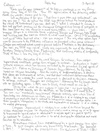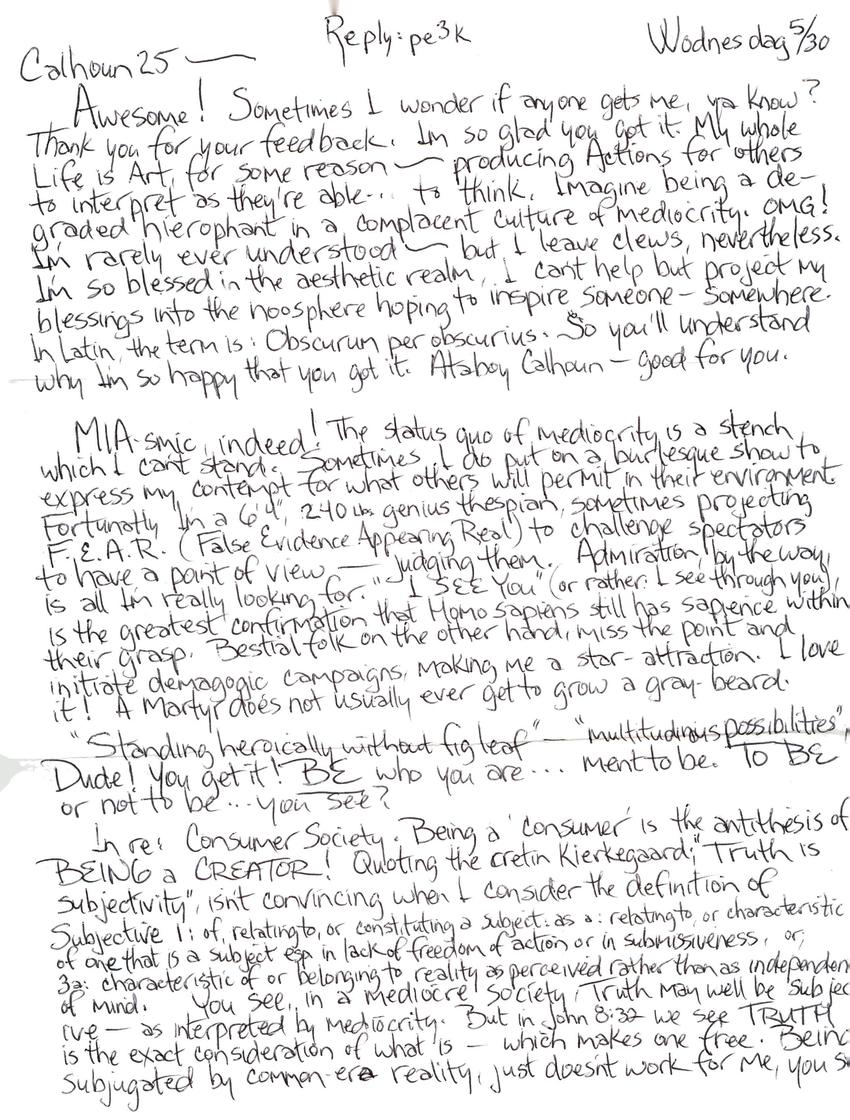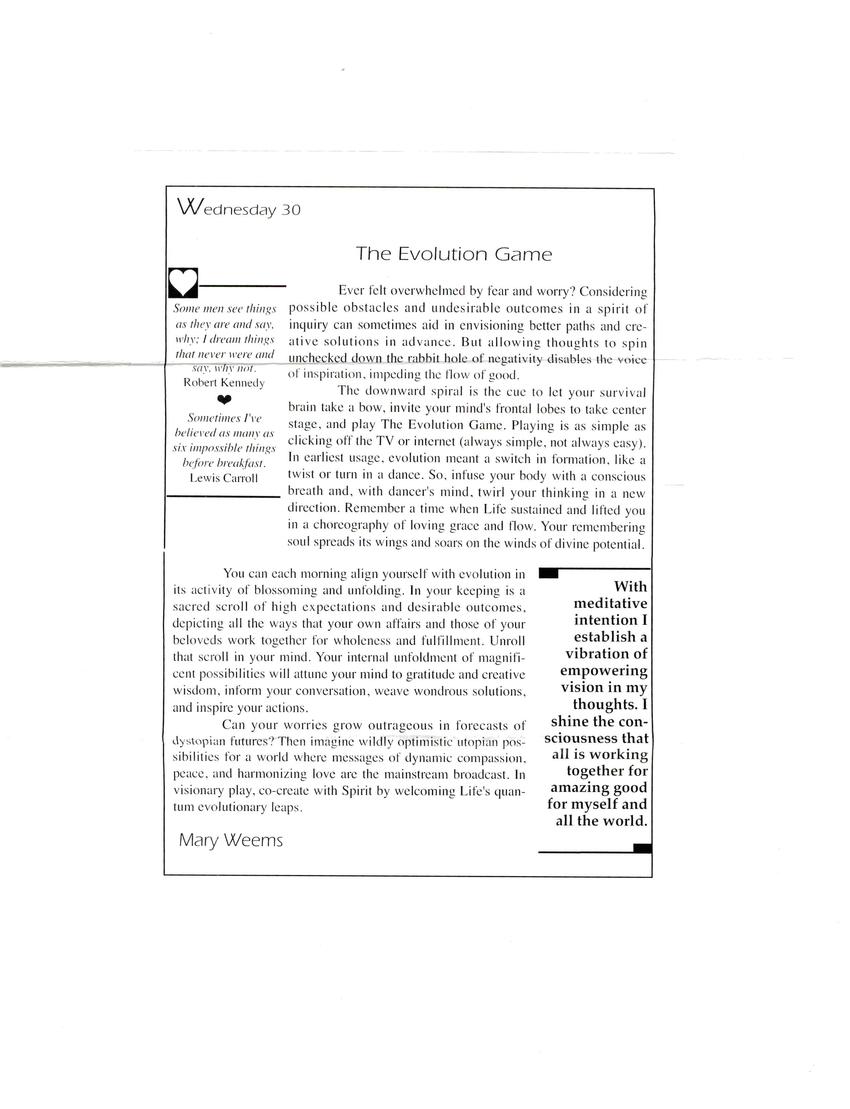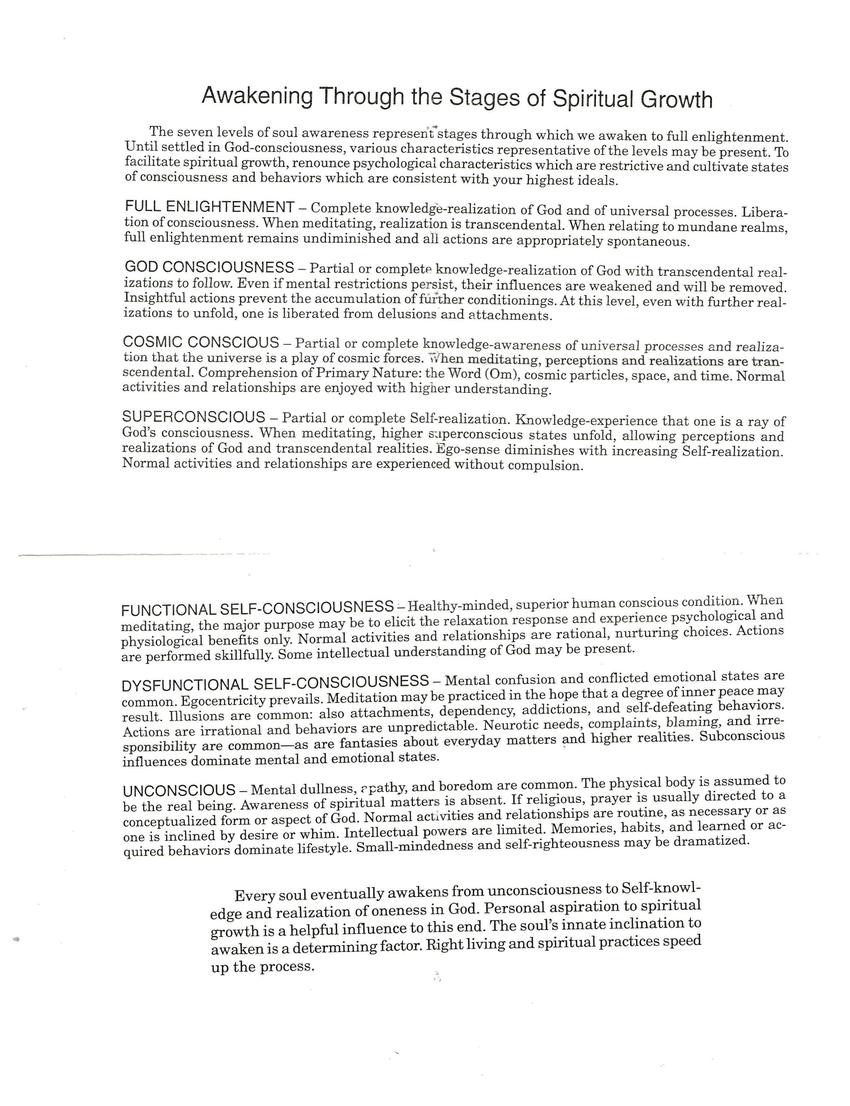
Transcription
Reply: pe3k
Wednesday 5/30
Calhoun 25
Awesome! Sometimes I wonder if anyone gets me, ya know? Thank you for your feedback. I'm so glad you got it. My whole life is art, for some reason - producing actions for others to interpret as they're able...to think. Imagine being a degraded hierophant in a complacent culture of mediocrity. OMG! I'm rarely ever understood - but I leave clues, nevertheless. I'm so blessed in the aesthetic realm, I can't help but project my blessings into the noosphere hoping to inspire someone - somewhere. In Latin, the term is: Obscurum per obscurius. So you'll understand why I'm so happy that you got it. Ataboy Calhoun - good for you.
MIA-smic, indeed! The status quo of mediocrity is a stench which I can't stand. Sometimes I do put on a burlesque show to express my contempt for what others will permit in their environment. Fortunately I'm a 6'4", 240lbs genius thespian, sometimes projecting F.E.A.R. (False Evidence Appearing Real) to challenge spectators to have a point of view - judging them. Admiration, by the way, is all I'm really looking for. "I see you" (or rather: I see through you), is the greatest confirmation that Homo sapiens still has sapience within their grasp. Bestial folk on the other hand, miss the point and initiate demagogic campaigns, making me a star-attraction. I love it! A martyr does not usually ever get to grow a gray beard.
"Standing heroically without fig leaf" - "multitudinous possibilities". Dude! You get it! BE who you are... meant to be. TO BE or not to be... you see?
In re: Consumer society. Being a 'consumer' is the antithesis of BEING a CREATOR! Quoting the cretin Kierkegaard; "Truth is subjectivity", isn't convincing when I consider the definition of subjective 1: or, relating to, or constituting a subject: as a: relating to, or characteristic of one that is a subject esp. in lack of freedom of action or in submissiveness, or: 3a: characteristic of or belonging to reality as perceived rather than as independence of mind. You see, in a mediocre society, truth may well be subjective - as interpreted by mediocrity. But in John 8:32 we see TRUTH is the exact consideration of what it - which makes one free. Being subjugated by common-era reality, just doesn't work for me, you see.
Wednesday 30
The Evolution Game
Some men see things as they are and say, why; I dream things that never were and say, why not.
Robert Kennedy
Sometimes I've believed as many as six impossible things before breakfast.
Lewis Carroll
Ever felt overwhelmed by fear and worry? Considering possible obstacles and undesirable outcomes in a spirit of inquiry can sometimes aid in envisioning better paths and creative solutions in advance. But allowing thoughts to spin unchecked down the rabbit hole of negativity disables the voice of inspiration, impeding the flow of good.
The downward spiral is the cue to let your survival brain take a bow, invite your mind's frontal lobes to take center stage, and play The Evolution Game. Playing is as simple as clicking off the TV or internet (always simple, not always easy). In earliest usage, evolution meant a switch in formation, like a twist or turn in a dance. So, infuse your body with a conscious breath and, with dancer's mind, twirl your thinking in a new direction. Remember a time when Life sustained and lifted you in a choreography of loving grace and flow. Your remembering soul spreads its wings and soars on the winds of divine potential.
You can each morning align yourself with evolution in its activity of blossoming and unfolding. In your keeping is a sacred scroll of high expectations and desirable outcomes, depicting all the ways that your own affairs and those of your beloveds work together for wholeness and fulfilment. Unroll that scroll in your mind. Your internal unfoldment of magnificent possibilities will attune your mind to gratitude and creative wisdom, inform your conversation, weave wondrous solutions, and inspire your actions.
Can your worries grow outrageous in forecasts of dystopian futures? Then imagine wildly optimistic utopian possibilities for a world where messages of dynamic compassion, peace, and harmonizing love are the mainstream broadcast. In visionary play, co-create with Spirit by welcoming Life's quantum evolutionary leaps.
With meditative intention I establish a vibration of empowering vision in my thoughts. I shine the consciousness that all is working together for amazing good for myself and all the world.
Mary Weems
Awakening Through the Stages of Spiritual Growth
The seven levels of soul awareness represent stages through which we awaken to full enlightenment. Until settled in God-consciousness, various characteristics representative of the levels may be present. To facilitate spiritual growth, renounce psychological characteristics which are restrictive and cultivate states of consciousness and behaviors which are consistent with your highest ideals.
FULL ENLIGHTENMENT - Complete knowledge-realization of God and of universal processes. Liberation of consciousness. When meditating, realization is transcendental. When relating to mundane realms, full enlightenment remains undiminished and all actions are appropriately spontaneous.
GOD CONSCIOUSNESS - Partial or complete knowledge-realization of God with transcendental realizations to follow. Even if mental restrictions persist, their influences are weakened and will be removed. Insightful actions prevent the accumulation of further conditionings. At this level, even with further realizations to unfold, one is liberated from delusions and attachments.
COSMIS CONSCIOUS - Partial or complete knowledge-awareness of universal processes and realization that the universe is a play of cosmic forces. When meditating, perceptions and realizations are transcendental. Comprehension of Primary Nature: the Word (Om), cosmic particles, space, and time. Normal activities and relationships are enjoyed with higher understanding.
SUPERCONSCIOUS - Partial or complete Self-realization. Knowledge-experience that one is a ray of God's consciousness. When meditating, higher superconscious states unfold, allowing perceptions and realizations of God and transcendental realities. Ego-sense diminishes with increasing Self-realization. Normal activities and relationships are experienced without compulsion.
FUNCTIONAL SELF-CONSCIOUSNESS - Healthy-minded, superior human conscious condition. When meditating, the major purpose may be to elicit the relaxation response and experience psychological and physiological benefits only. Normal activities and relationships are rational, nurturing choices. Actions are performed skilfully. Some intellectual understanding of God may be present.
DYSFUNCTIONAL SELF-CONSCIOUSNESS - Mental confusion and conflicted emotional states are common. Egocentricity prevails. Meditation may be practiced in the hope that a degree of inner peace may result. Illusions are common: also attachments, dependency, addictions, and self-defeating behaviors. Actions are irrational and behaviors are unpredictable. Neurotic needs, complaints, blaming, and irresponsibility are common - as are fantasies about everyday matters and higher realities. Subconscious influences dominate mental and emotional states.
UNCONSCIOUS - Mental dullness, apathy, and boredom are common. The physical body is assumed to be the real being. Awareness of spiritual matters is absent. If religious, prayer is usually directed to a conceptualized form or aspect of God. Normal activities and relationships are routine, as necessary or as one is inclined by desire or whim. Intellectual powers are limited. Memories, habits, and learned or acquired behaviors dominate lifestyle. Small-mindedness and self-righteousness may be dramatized.
Every soul eventually awakens from unconsciousness to Self-knowledge and realization of oneness in God. Personal aspiration to spiritual growth is a helpful influence to this end. The soul's innate inclination to awaken is a determining factor. Right living and spiritual practices speed up the process.
Other posts by this author
|
2023 may 31

|
2023 apr 5

|
2023 mar 19

|
2023 mar 5

|
2023 mar 5

|
2023 mar 5

|
More... |





Replies (10)
It’s good to hear back from you! I am humbled by your praise. I do try to understand others, though not always (or even often) with accurate results. I stand to learn much more about understanding others. As long as I’m imperfect in this respect, there’s something to work on. I remember coming across a book titled “How to Read a Book”. It was written by Mortimer Adler. I briefly flipped through the book. It seemed very interesting, at least at first glance, showing me there is much more I can learn about digesting written works. Since humans are (usually) much more complex than the words they write, there is much more for me to learn about understanding others.
Yes, keep projecting those aesthetic blessings! It means so much to know someone is calling out to you, or perhaps transmitting you signals through the “noosphere”. Some individuals feel like musical or artistic ideas strike them out of the blue. Perhaps they’re getting some of your aesthetic blessings? I know I certainly am profiting from your aesthetic transmissions. You might even say they’re inspiring me, in a way, as I write this letter!
I like your Latin phrase. I took Latin for several years in middle and high school. I have fond memories of the classes, because my teachers were so intelligent and inspiring. They taught me the value of loving a particular thing, in this case Latin, even when many others think it is stupid or uncool or unprofitable or a waste of time and resources. Some of the Latin poetry we read is truly beautiful. Because it is very easy to rhyme in Latin, poetry in that language had to rely on subtle literary techniques other than rhyming at the end of a line. The best Latin poets could improvise a poem about their current circumstances. It reminds me a lot of off-the-dome freestyle in modern day rapping!
Jesus was also a social gadfly. He would commune with those society marginalized, such as the lepers, prostitutes, and tax collectors. In Jewish society at the time, sharing a meal with such individuals would be considered unbecoming, if not outright immoral. That’s why it was a big deal when Jesus would talk and eat with these individuals. Jesus would also offer novel instruction. He would teach with authority, in a way that challenged the traditional teachers. You can imagine how upsetting this might be for the traditional teachers, especially since Jesus was from Nazareth, which at the time was considered a backwater nothing. Like Socrates, Jesus was also executed young. As you said, “a martyr does not usually ever get to grow a gray-beard”. Couldn’t have said it better myself.
I think you pose an interesting critique of Kierkegaard. If truth truly is subjectivity, then from what angle can one criticize another for their injustice or ill-thinking? For example, from what angle could one criticize mediocrity, as you are saying? It seems you want to say that truth is objectivity. There is an objective moral and spiritual truth out there. This objective truth is what we appeal to in criticizing, say, mediocrity in society. I think this objectivity is grounded in God, but I know people have different views about this.
I think the article you shared, titled “The Evolution Game”, offers a unique method for building optimism. I don’t think I’ve heard of it before. It reminds me of the following, which you might find interesting. Apparently, studies have shown that a certain method can help individuals with PTSD. The method consists in having them follow a light with their eyes, while asking them deep questions about their suffering and trauma. Perhaps there is something relaxing about following the light. It brings down the psychological barrier, allowing the deep questions to penetrate through and heal the spiritual injury. Your “Stages of Spiritual Growth” looks very interesting as well. I’ll have to ponder these articles more deeply.
Anyway, that’s all for now. Keep up the good thoughts and aesthetic transmissions! Take care.
Peace,
Calhoun25
P.S. Thanks for teaching me the word “hierophant”. It’s a very neat one.
It’s always a pleasure to hear back from you!
I didn’t think you were inappropriately bombastic in your critique of mediocrity. I took you to be using hyperbole in order to drive home your core points. Whatever you make of him, the philosopher Nietzsche often used the same tactic: hyperbole to make the point. For psychological reasons, it seems, humans sometimes pay more attention when truths are dressed up in loud colors. Also, I appreciate your humility in admitting to not be “a paragon of excellency by any stretch of the imagination”. I think it is possible to speak the truth, to call out and persuade others to betterment, while acknowledging one’s own faults and imperfections. Indeed, if we had to wait until perfection to educate others in matters of morality and spirituality, then just about nobody would get to teach and make pronouncements. Perhaps this analogy is helpful for how to criticize and teach while remaining humble: Calling out others in love and boldness is inviting them to join you on a journey toward betterment, as equal partners; it is not forcing them to worship or serve you for miles on end. (Perhaps some people take criticism the wrong way when it shows up in the political world.)
Alright, that’s all for now, William. If you’re able to, I would love to check out your “A New Slant on Life” course. It sounds promising. Take care, and talk to you later.
Peace,
Calhoun25